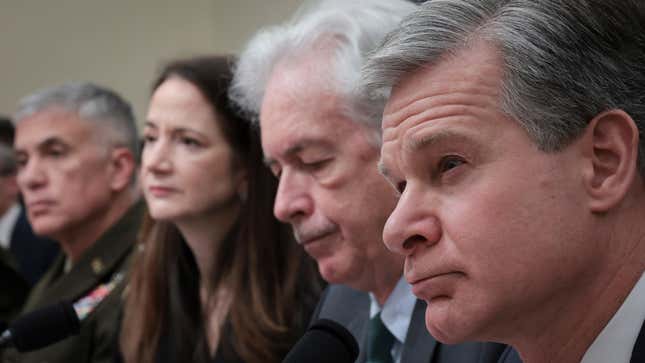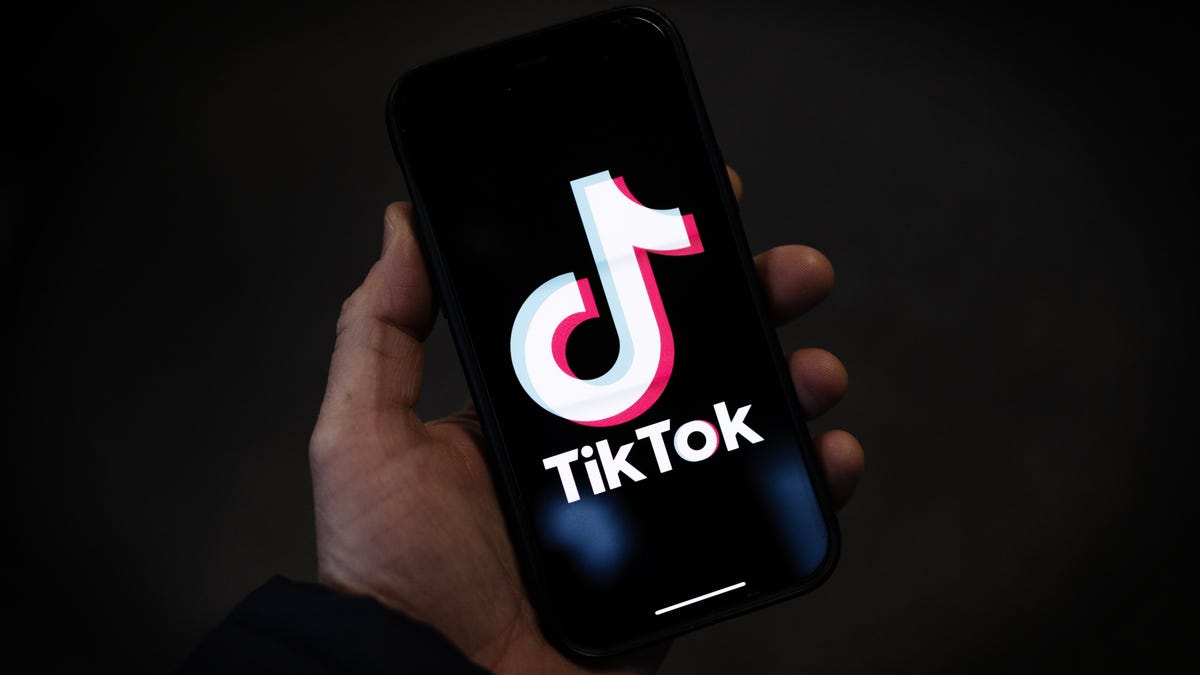On Thursday, TikTok CEO Shou Zi Chew will testify before Congress, marking his highest-profile speaking opportunity to date. He wants you to hear this message: TikTok is not a threat, and it has become too important to too many Americans to ban.
TikTok is locked in a battle with the US government over the app’s privacy and security. TikTok is owned by ByteDance, a Beijing-based company, and thus could be forced to hand data over to the Chinese Communist Party. Some critics worry the app could also be used to spread propaganda. Now, after banning TikTok from federal devices, President Joe Biden has landed on the same solution Donald Trump favored in 2020: a ban. The White House says ByteDance must sell TikTok or face a nationwide prohibition. It’s a fix Chew opposes.
Over the past few months, TikTok’s communications department has landed on a new public relations strategy. Not only quelling data concerns, but also arguing that the app is essential to American business and free speech.
TikTok faces an uphill battle of aggressive bills and an uncertain public
Chew’s pitch to lawmakers—that TikTok is simply too integral to US internet users to break up—hitches itself on a bold new claim about the size of the app’s American users base. The CEO will tell lawmakers the app attracts around 150 million monthly active US users, nearly half of all Americans. That’s a dramatic upsurge from the already lofty 100 million users TikTok boasted in 2020. To put that in perspective, Facebook, widely considered the largest social network, had 266 million combined monthly users in the US and Canada in the last quarter of 2022.
Chew could point to those users to illustrate the app’s popularity amongst Americans, even amid a voracious surge in lawmakers frothing at the mouth for a national ban. The large figure could also be used as a reminder to lawmakers of the potentially thousands of business owners who could have their livelihoods disrupted by a ban. Speaking in a TikTok video Tuesday, Chew estimated around 5 million business use TikTok to reach their customers.
“TikTok creators are small business owners trying to make a living and put food on their tables, teachers educating the next generation of leaders, and everyday innovators who represent the breadth of America,” a TikTok spokesperson told NBC News. TikTok did not respond to a request for comment.
The 150 million users are mostly of voting age, with around 138 million reportedly over the age of 18, with an average age of 31. Those figures notably do not include TikTok users under the age of 13, meaning TikTok’s estimate of its total user base is even higher than 150 million.
Recent polling data covering wide swaths of US adults show a nation roughly split on banning the app. A March Quinnipiac poll, for example, found nearly half (49%) of all adults said they support a national TikTok ban compared to 42% opposed. Those views vary significantly along party lines. 64% of Republicans say they support a ban versus just 39% of Democrats who say the same. Alternative polling from the more GOP-friendly Rasmussen Reports put the overall figure of adults in favor of banning TikTok higher at 68%.
That general uncertainty among the wider public is mirrored in Congress. In March, Republican House members rushed through a vague and hastily written bill through committee that would grant the Biden administration the ability to totally ban TikTok or other foreign software companies involved in the transfer of “sensitive data.” The bill likely will not pass a Democratically controlled Senate, but the so-called “DATA Act” still managed to make it further than a pair of previous Republican bills targeting TikTok.
Republican House members aren’t the only ones interested in restricting apps like TikTok, though. Expect Democratic lawmakers to try and score just as many “evil China” bingo points on Thursday. This month, a bipartisan group of senators led by Virginia Democrat Mark Warner introduced a new bill that would give President Biden’s Secretary of Commerce the authority to ban foreign technology companies deemed a national security threat. Those measures don’t only apply to TikTok, but the bill clearly seems written with the controversial Chinese app in mind. The Biden administration supports the bill.
Warner, in a recent interview with Wired, said TikTok’s foreign ownership and large US user base means it “could be an enormous propaganda tool.”
“Let me be clear,” Warner said. “China changed its law in 2016 to make sure that, at the end of the day, every company’s ultimate master is the Communist Party of China.”
TikTok, for its part, is trying to conduct business as normal. An advertising agency executive told Ad Age TikTok executives had recently met with industry leaders to, “essentially convince them the platform is not going to be banned.”
TikTok’s new look: A beacon of free speech
All of TikTok’s recent statements on the subject circle around the same themes: free speech and business. It’s an argument that seems tailor-made for censorship-focused conservatives, who tend to be more hawkish on TikTok than their Democrat counterparts.
“We hope that Congress will explore solutions to their national security concerns that won’t have the effect of censoring the voices of millions of Americans,” a TikTok spokesperson told Gizmodo in early March. “A US ban on TikTok is a ban on the export of American culture and values to the billion-plus people who use our service worldwide.”
The company is also working to further entrench its economic ties to the US. Taking a leaf from the book of Patreon and OnlyFans, TikTok announced a new paywall feature that will let creators charge for their videos. It’s a clever strategy. Chew is likely to argue that TikTok users are workers who depend on the app for their livelihoods—which is already true, to an extent—and banning TikTok amounts to killing American jobs.
“TikTok creators are small business owners trying to make a living and put food on their tables,” TikTok spokesperson Jamal Brown told the Wall Street Journal. “Lawmakers in Washington debating TikTok should hear firsthand from people whose lives would be directly affected by their decisions.”

Surveilled journalists and angry whistleblowers could make life harder for TikTok
A series of recent overreaches and damning whistleblower complaints from former employees haven’t helped TikTok’s case. Over the weekend, The New York Times reported that the Department of Justice is investigating TikTok over claims it spied on three former BuzzFeed reporters while investigating the origin of an internal leak.
TikTok says it fired the employee responsible for the surveillance and has since “strongly condemned their actions.” Previous leaked audio from internal TikTok meetings reported on by BuzzFeed News included statements from nine employees who admitted China-based engineers had access to US user data for five months between September 2021 and January 2022.
Making matters even worse, a pair of whistleblowers who spoke with The Washington Post and Republican Sen. Josh Hawley say TikTok’s efforts to secure US user data in Oracle servers simply don’t go far enough, with one saying only a “complete re-engineering” of the app would suffice to meet lawmakers’ demands. The other former employee, writing in a letter sent to ByteDance by Hawley’s office, alleged TikTok and ByteDance are, “functionally the same company.”
“I have seen first-hand China-based engineers flipping over to non-China datasets and creating scheduled tasks to backup, aggregate, and analyze data,” the letter reads.
In a recent interview with the Wall Street Journal, Chew said a sale, pressured or otherwise, wouldn’t grant US user data any more security than the company’s current data routing plan, dubbed “Project Texas.” As part of that proposal, TikTok promises to silo its American operation into a subsidiary called TikTok US Data Security, whose leadership would require American government approval.
“I do welcome feedback on what other risk we are talking about that is not addressed by this,” Chew said. “So far I haven’t heard anything that cannot actually be solved by this.”
Okay, but what about all those other data privacy scoundrels?
Time and again, what’s lost in the TikTok conversation is that the theoretical national security concerns about the app don’t make much sense, at least in isolation.
It doesn’t matter who owns TikTok, whether it’s a Chinese company, an American company, or anyone else. That’s because American social media and tech companies expose American data to identical risks. Instagram, Facebook, and Twitter, for example, have all partnered with Chinese ad tech companies. That means they’re sending American data to Chinese servers, where, in theory, the Chinese Communist Party could demand a copy of it.
Of course, TikTok does collect a mountain of data from across the internet (just like other big tech companies), and that is a problem for anyone who cares about their privacy. It’s possible there’s something we don’t know about TikTok’s data practices, but technical privacy experts have pored over the app without finding anything unusual in its code.
Furthermore, there are hundreds of American data brokers who cheerfully collect and sell data to anyone who wants it. If the Chinese government would like to see US data, it can buy that information, because federal privacy laws in the United States are weak.
Over the past few weeks, discussions about TikTok have started to shift towards questions about why there’s no federal privacy law. It’s the first glimmer of hope that any part of the TikTok privacy debate will improve the very real privacy issues consumers face every single day.







